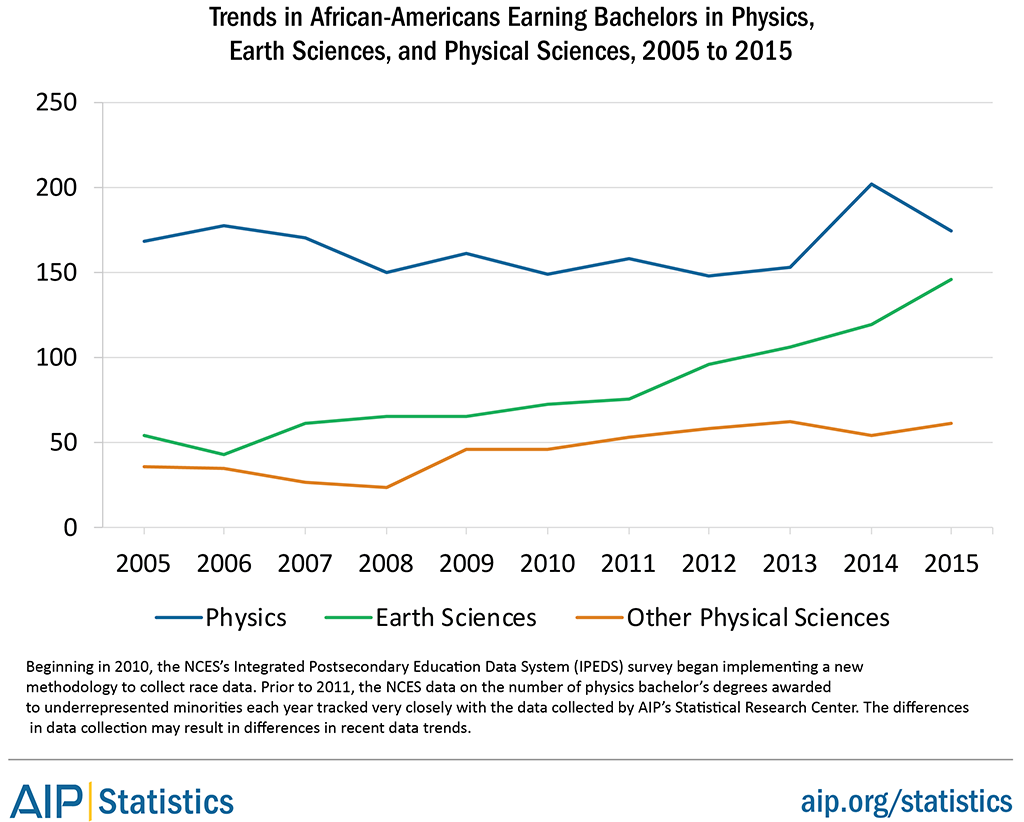New Data on Bachelor's Degrees Earned by African Americans

Richard Fienberg Running Hare Observatory
This post is adapted from an American Institute of Physics press release:
African Americans are seeing growth in many engineering and physical sciences fields, but they are not progressing at the same rate when compared to the general population.
A report from the American Institute of Physics (AIP) Statistical Research Center (SRC) examined the number of bachelor's degrees earned from 2005 to 2015 and separated out the numbers for African Americans from the rest of the students. The data was gathered by the National Center for Education Statistics from postsecondary institutions in the United States.

The SRC found that the number of degrees earned by African Americans in the physical sciences grew by 36% over that 10-year period, which was less than the growth of degrees by all students, 55%, during the same time.
In four of the seven physical sciences fields, the number of degrees earned by African Americans grew faster (by percentage) than the growth overall, but those fields were among the smallest numbers of degrees earned. The other fields, which had larger numbers of graduates, showed a slower than overall growth rate.
In engineering, the number of bachelor's degrees earned by African Americans increased by 19%, less than half of the overall growth in the field of 44%.
Only two fields in engineering (civil engineering and materials engineering) showed growth in the number of African American graduates when compared to the rest of the students in those fields. The other seven disciplines showed slow or negative growth.
The number of African Americans earning bachelor's degrees in the physical sciences and engineering has grown during the 10-year period from just under 6,000 degrees earned in 2005 to more than 7,000 degrees earned in 2015. While more African Americans earned degrees in 2015 than in 2005 in the physical sciences, for engineering, the number for men earning degrees showed an increase while the number of women earning degrees decreased.
TEAM-UP, an initiative launched by AIP and the American Association for the Advancement of Science, has been conducting a two-year campaign to study of factors enhancing the success of African American undergraduates pursuing bachelor's degrees in physics and astronomy. The report is expected to be released during the 235th AAS meeting in Honolulu, Hawaii, 4-8 January 2020.

